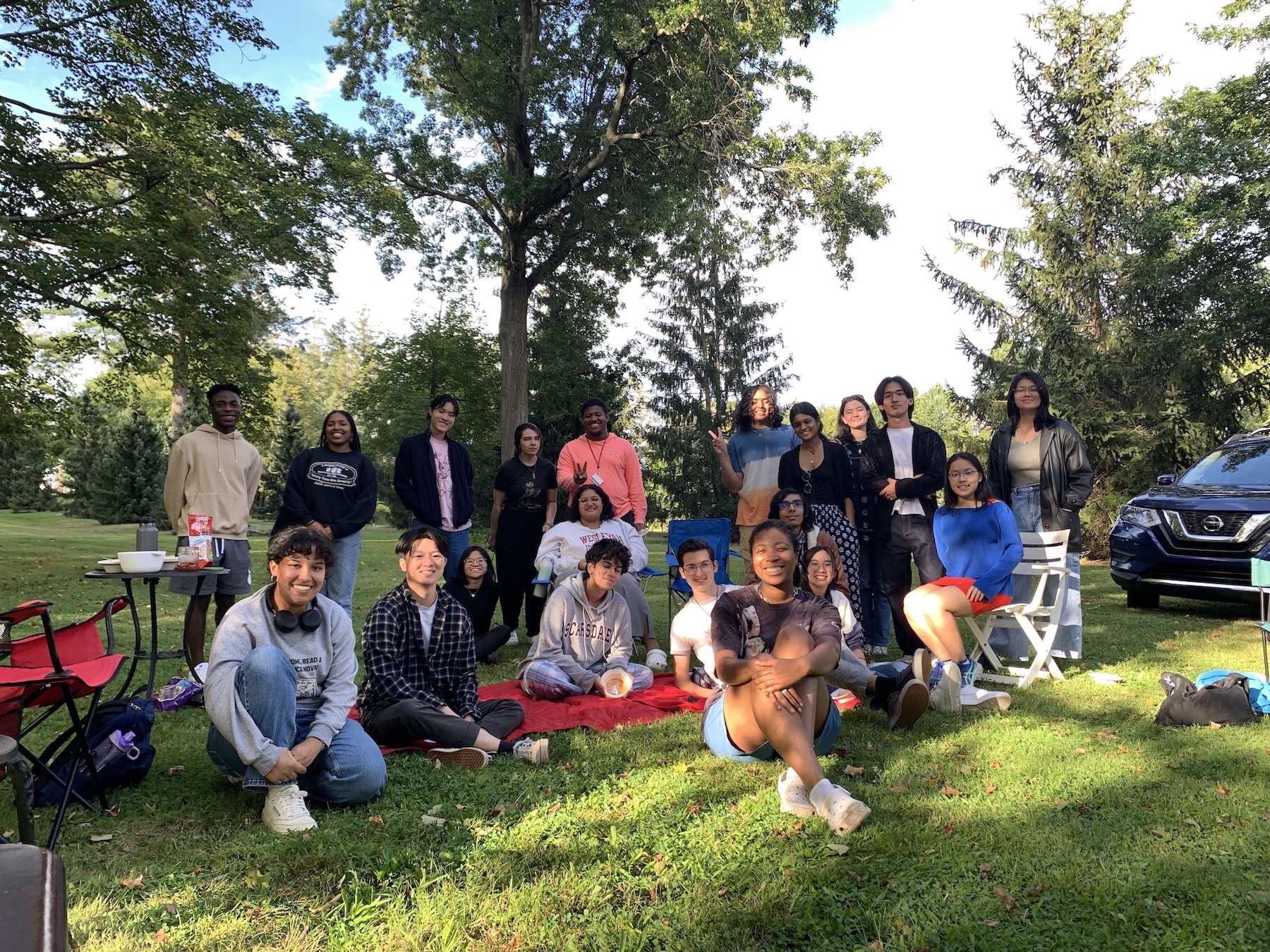
SHADES—Wesleyan’s theater collective for Black, Indigenous, Latine, and Asian students—held an open mic for their first event this semester on Saturday, Sept. 16 in the backyard of 202 Cross St. SHADES was founded in 2015 as a space for students of color (SOC) to share their love of theater and as a way to combat racism in both the theater department and student theater on campus. Originally intended only for BIPOC theater productions, SHADES has expanded to include all BIPOC forms of creative expression.
“It is really important for there to be a space for not only theater makers, but all creatives of color,” SHADES coordinator Alisha Simmons ’24 said. “Filmmakers, writers, dancers—to have a space to meet each other, and collaborate, and build community…. We are so underrepresented in all arts aspects, all arts spaces on campus, and our voices are often undervalued.”
The open mic show, organized by Simmons, was an opportunity for BIPOC students to showcase their talents. A welcoming energy characterized the afternoon as students congregated to watch and perform live music and poetry, including a rendition of “Ain’t No Mountain High Enough” and original songs by students.
“It feels like a safe space for performing,” Francisca Wijaya ’27 said. “I think what is really good is that it is a very small group of people…. We can have deeper conversations before the open mic.”
Students came together to support one another and foster a sense of community that otherwise would have been missing among BIPOC creatives on campus. Numerous clubs and organizations were put on hold during the COVID-19 pandemic, leading to a drought of the vibrant culture of student clubs on campus. The loss of institutional knowledge caused important spaces for BIPOC—such as SHADES—to be stuck in limbo.
“There is a real issue on campus, and all college campuses, with institutional memory because of the pandemic,” Simmons said. “A lot of things that happened pre-2020 have gotten lost because those people that were doing it graduated, or got too tired, or went remote, or took a gap year or something. So I do think this year—and also last year—are when things are starting to actively resurge again, because people are finding those things that were lost and trying to tap back into that.”
The resurgence and revitalization of organizations such as SHADES is crucial for maintaining student life on campus, which has taken a hit due to the pandemic. Romani Osbourne ’25 shared his thoughts on the community he found when he joined SHADES.
“I’ve always been a creative, but since I came to Wesleyan, I’ve never explored that side of myself, and I’m really in need of a creative outlet,” Osbourne said. “I [wanted] some sort of community. I came across SHADES on Instagram, and they seemed very attractive. Coming here, everyone is so nice and it feels good to display my poetry.”
SHADES is planning more events and projects to keep the BIPOC creative community alive and flourishing. Upcoming projects include “About Her” by Dennis Bush, which features a woman of color lead and is directed by Senica Slaton ’26; a play based on the original Broadway theater production “12 Angry Men,” as adapted by Sherman L. Sergel; and “Seeing Double,” a senior thesis film written and directed by Natalie Williams ’24. Students interested in the play based on “12 Angry Men” can contact CJ Joseph ’25 or Mo Andres ’24 for more information, and auditions for “Seeing Double”—which will star a BIPOC woman in the role of Deja and follow her struggle to perform well at her new job after moving to a new town— will be held Sunday, Sept. 24 and Tuesday, Sept. 26.
To reach out or get involved in SHADES, students can reach out to Simmons at aasimmons@wesleyan.edu or email shades.wesleyan@gmail.com.
Erick Buendia can be reached at ebuendia@wesleyan.edu.



Leave a Reply